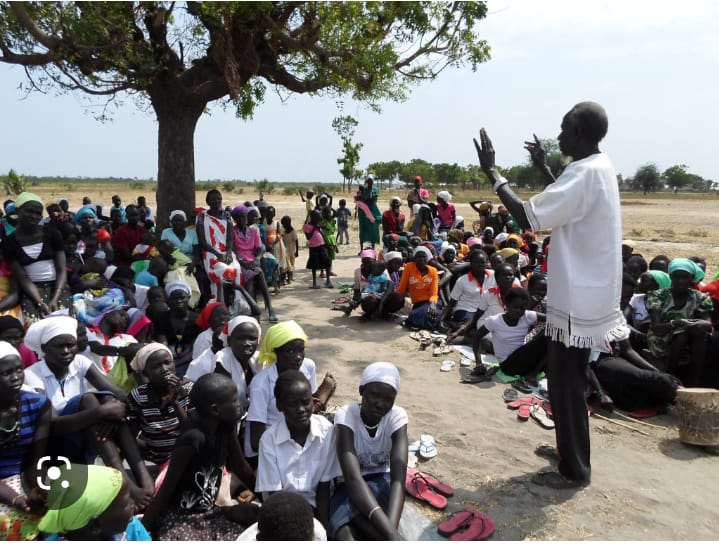The Population Census conducted in 2021 saw a significant decline in Catholic population in Ghana (from 18% in the previous census to 10% in the recent). This certainly is alarming and should be taken seriously.
The Ghana Catholic Bishops’ Conference (GCBC) has expressed shock and dissatisfaction of the recent outcome. The GCBC has further issued a communique to that effect; outlining some concrete remedies to resolve this as quickly as possible. This article seeks to bring to bear some fundamental root causes of the recent waning in the Catholic population in Ghana.
Well, some school of thought would argue that brooding over quantity is not necessary as quality. Nevertheless, in the same token, one equally needs quantity to measure up one’s effort and growth. Quality is a watch word in every organization, however, quantity should not be played down, when it comes to the holistic effort one puts in. Quality walks side by side quantity but quality should often lead the way.
There are a number of misunderstanding and misguided factors or perceptions of some people (Catholics and non- Catholics) on the Church’s teachings or doctrinal positions, which are contributing to the decline. Some of these erroneous impressions of some people about the Catholic Church are: the Catholic Church is a satanic church, it is not a Christian Church, they don’t pray like the other churches do, they call on saints and spirits, the pope is the Anti-Christ, the Catholic Church is outmoded, the Catholic Church is against abortion, contraceptives, women becoming clerics. The Church is against the act and activities of gay and lesbians and freemasons.
Amidst all these, there are also a couple of economic and pastoral reasons as well: joblessness of the youth, poverty, lack of visit to parishioners (especially the sick and old parishioners) and insecurity in marriages and families.
The truth is that the above-mentioned factors are only secondary causes to the decline of the Catholic population.

One of the primary causes is the seriousness attached to Catechesis classes or instructions that are held in parishes, schools and families. The Catechetical system operating currently in nearly all the parishes, if I am not mistaken is merely informational as opposed to being transformational.
Just a little challenge to begin with: quiz some of the children who received the sacrament of baptism, first Holy Communion or Confirmation either in 2021 or 2022 and see the heartbreaking explanation and answers you will get. For instance, why do Catholics make the sign of the cross? The answer you would receive, will put you on another cross beside Jesus. Certainly, these are not sweepy statements, majority of our children are in this predicament.
It is usually a joyful moment for most families, parishes and of course the entire Church to have huge numbers turning up for the sacraments. However, the real question is, how well did these kids assimilate what was taught or are being taught? How does it enhance their faith as Catholic and for that matter as Christians? Growing up as adults, can they own what they have learnt, understood and also pass it on?
Of course, Catholics may blame other churches or faith seekers for indoctrinating and siphoning their members, nonetheless, the truth is that it is a clear indication the catechesis lessons taught in some of our parishes, families and schools are either not deep enough or nothing to write home about. Catechetical instructions are the gateway to all the Sacraments and ultimately making one a full member of the Catholic family, yet, this is one area either very little attention is paid to or very much neglected.
In the Catholic Church, the family: father and mother or guardian are presumed to be the first handlers or Catechist of their children before they start any formal catechetical classes. St. Pope John Paul II, reiterated this beautifully that “the family is the Domestic Church”. Once the child misses the fundamental instructions regarding faith from the family, the problem begins.
Today, there is a huge challenge with the notion of what an ideal family is: both parents are working. One lives miles away from the other, children keep changing beds nearly every weekend and on holidays, some are raised by single parents who are equally busy to make ends meet. Those who live together as the ideal families are like tenants renting an apartment; “everyone for himself, God for us all type of family”.
In other words, the notion and responsibility of parents being the first catechist to their children is now relegated to the parish community. The days when you went to church and parents will ask you what you heard or learnt at Mass are gone. The days parents with their children will look at the readings of the proceeding Sunday before Mass is now a thing of the past; at least some parents still make sure their children attend Mass on Sunday.
Sometimes, some parents just feel spellbound to have their children receive the Sacraments of Initiation (Baptism, first Holy Communion and Confirmation) as an obligation and not as a Christian duty or responsibility. This should be perceived as an act of kindness by handing over a precious gift (faith) to your child or children.
Another primary reason for the decline in the Catholic population is that most adult Catholics are handicap when it comes to the Catholic teachings and doctrines. There is a saying that “you cannot give what you do not have.” As earlier on preempted, once the foundation is weak or not properly understood, it affects the future as well. Many adult Catholics begin to research about the Catholic faith only when they are either confronted by other churches or they have an exam to write, otherwise they are just content with the little they know.

The formal period of catechesis for most places begins with children at the age of 7, which is considered as the age of reasoning, where the child is presumed to have the ability to discern between what is right and what is wrong. Nevertheless, this does not spell out maturity in most cases or in most children for that matter. When it comes to faith issues, it is far more than just knowing what is wrong and what is right.
This raises concern with the age group or bracket, when children start instructions for Catechumens or the Rite of Christian Initiation for Adult (RCIA).
Those baptized as infants, at the age of 7 could in my opinion start pre-Catechesis classes, where specific lessons are designed for them. At least, this period could specifically be used to prompt their minds on what to expect in the next stage. This should take at least a period of 3 years by which time the child is still in primary school.
The second stage should start at the age of ten, where the child would be in Junior High School and this should cover the period of 2 years. This period is slated for 2 years because it would be appropriate to avoid the year they are preparing for their major examination at school. The focus at this stage would be to start giving relevant meaning and scriptural references to some of the things they learnt in the pre-Catechetical period.
The third stage is specifically for the sacrament of Confirmation. This begins when they are in the Senior High School. This should also be slated for 2 years. This should not also interrupt their final year when they are going to preparing for their final examination. This stage is a little dice and a lot of encouragement and commitment from parents, pastors, Catholic teachers and even school authorities would have to play a key role.
First, children need to be encouraged to enroll for this sacrament; parents would have to play a serious role here. Secondly, pastors, priests and chaplains of the various schools would have to make time and personally get involved at this stage as this is a delicate stage. Catholic teachers can play a significant role at this stage as well; they can team up with the chaplain or priests to teach Catechesis. Thirdly, permission from school authority would have to be sought, particularly for schools that are not Catholic Schools.

Catechumen in the boarding facilities would have to be taught in the school at a given period while the day scholars attend theirs in the parish they belong to at the weekend. The focus here will be more in the form of discussion, research, group sharing and deepening more on scriptural references. Encourage them to make use of the internet to also discover a lot of other opinions.
Most priests and pastors have relegated the entire teaching of Catechesis to Catechists, who sometimes are having scanty ideas as to what to teach apart from the “traditional and rubrical” method or way. Surely, a lot of them are dedicated to their work, however, most of them need formal training or formation especially those in the remote communities.
Needless to add that Sunday School for the very young ones should also be taken seriously in the various parishes. Most times, those periods are taken as moments to engage kids from disturbing during Mass, however, this is a very precious time to help form their conscience with the Word of God. Sunday School teachers engaged with such kids should be given some training; willingness alone is not enough. Parents on the way home might have to tease out to know what their kids learnt during the Sunday School. Parish Priests or pastors would have to visit them occasionally at some of their sessions and more importantly, periodically involve them in the main liturgy of the parish community.
They should not always be alienated from the main community during liturgical celebrations; let them play active role sometimes.
The second antidote to the decline in the Catholic population in Ghana and for that matter other parts of Africa is On-going Formation or Post-Catechism period.
For most parishes, weekdays would have been the best time to consider that but unfortunately a lot of parishioners are busy with work and other commitments in their families. This also affect significantly weekday Masses at most places; Some knock off from work at late hours and need to be home with their families. This affects any attempt to do any on-going formation or post Catechism lessons. On weekday, you keep having the same number of people attending programs. One credible time to do any Post Catechetical program or teaching would be on Sunday during Mass. If a particular Sunday is earmarked by each parish (bigger parish that have once a month joint Mass, not during a specific feast day) they could cease the opportunity to treat a specific topic in place of the homily and invite parishioners to be actively involved taking comments, contributions and questions. This will go a long way to bridge the gaps created. If these are done properly, they will go a long way to address most of the secondary root causes that are also contributing to the decline in the Catholic population in Ghana.
Another fertile grounds for the Catholic faith to triumph is among the Catholic youth or specifically among the various youth groups in the parishes and schools. First of all, young people have to be fearless, proud, cherish and fall in love with their Catholic faith. Secondly, admit your Catholic teaching and way of worship is unique and different from other people or churches and thirdly actively live out the faith wherever you find yourself.
Many young Catholics feel apprehensive when they come among their fellow Christian brothers and sisters from other Christian denomination. Partly because they are not abreast with their own faith teachings. You would not believe some feel intimidated even making the sign of the cross in public. Youth Chaplains, parish pastors and parents would have to take this seriously.
Do not learn Catechism because you only want to receive the sacraments and that ends it. Do not learn it because you want to refute a particular faith doctrine of another church. First and foremost, learn it because you want to enhance your own faith and understanding of the Christian family you believe and live in. Finally, learn it because you want to be in a position to pass this on as a gift to your children. If this is taken seriously, quality will precede quantity alright but quality will definitely not walk alone.
Watch out for part 2
Rev. Fr. Aazine Nibetol Nicholas, SVD
St. Dominic Catholic Church, Adweso
Koforidua Diocese
Email: nicholasbetol@gmail.com



